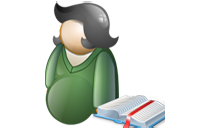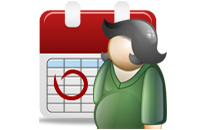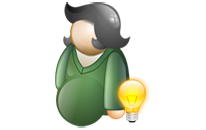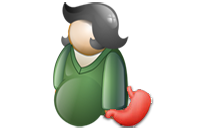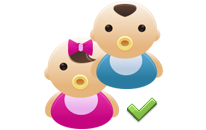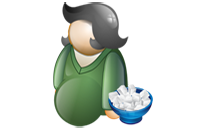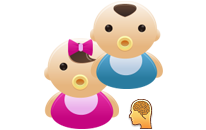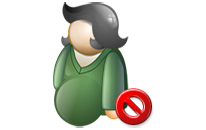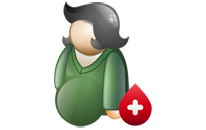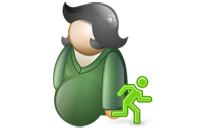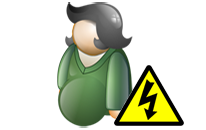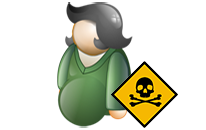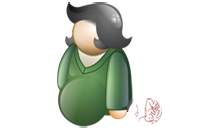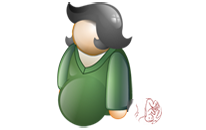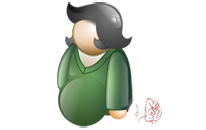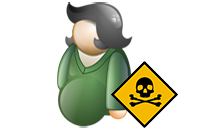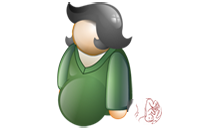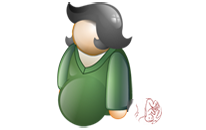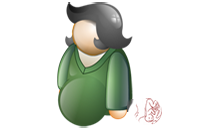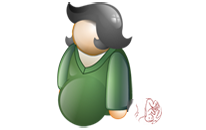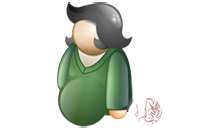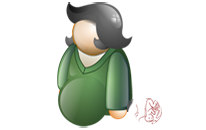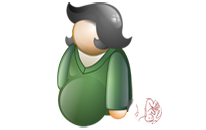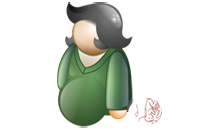Pregnancy Guide
Definition of Pregnancy:
The pregnancy is the fertilization and development of one or more off spring known as an embryo or fetus and it’s the period from conception till birth.
The egg is fertilized by a sperm then implanted in the in the lining of the uterus to develop to placenta and embryo, and later to fetus.
Normal pregnancy last 38 to 42 weeks beginning from the first day of the women last menstrual period and it’s divided to 3 stages and each stage last for 3 months.
- 1st trimester: It carries the highest risk of miscarriage (natural death of embryo or fetus).
- 2nd trimester: The development of fetus can be more easily monitored.
- 3rd trimester: It approximates the point of viability, or the ability of fetus to survive with or without medical help outside the uterus.
Symptoms of Pregnancy:
A- 1st trimester (1 - 12 weeks) :
- Missed period The most common symptom of pregnancy, although some women bleed in the beginning but typically the bleeding will be shorter or lighter than a normal period.
- Implantation bleeding: One of the earliest symptoms of pregnancy. The embryo implants itself in to uterine wall about 6 to 12 days after conception and may cause spotting and cramping.
- Swollen / tender breasts: Shown in the first 2 weeks after conception as the mammary glands prepare for eventual breast feeding, nipples begin to enlarge, veins over surface of breast become more prominent and skin around your nipples may get darker.
- Nausea and vomiting: Common symptom usually shows up between the second and the eighth weeks after conception and it’s commonly known as morning sickness but it can happen any time of day or night and it is caused by hormonal changes especially the increased level of progesterone.
- Fatigue / Tiredness: Common symptom start as early as the first week after conception due to hormonal changes.
- Back aches: It can occur early in pregnancy and it’s common to experience a dull backache through pregnancy.
- Headaches: It can occur early in pregnancy and it’s common due to the sudden rise of hormones.
- Frequent urination: It’s common around the sixth and eighth weeks after conception and there may be a creamy white discharge from the vagina.
B- 2nd trimester (13 - 28 weeks) :
- Enlarged uterus easy to feel
- Skin may become darker
- Some may have flushing
- Baby’s movement will be felt in most women by week 22
- Increase of Appetite
- Nipples become bigger and dark
- Nausea and vomiting fade away and women feels better
C- 3rd trimester (29 - 40 weeks) :
- Some may have nipple discharge
- Low back aches
- Braxton hick's contraction may become stronger
- Stretch marks may appear on abdomen, breast
- Dark lines may appear from navel to pupil hair
- The baby’s head drops down low in pelvis at about the week 36 and this relieve pressure on upper abdomen and lungs.
Weight gain:
- Healthy weight gain is between 25-35 pounds and pregnant women need an additional 300 calories/day.
- In the first 3 months, women will gain 3 to 5 pounds.
- After the first 3 months, women gain 1-2 pounds a week until baby is born.
- On average, the birth weight of a healthy full term baby is 7.5 lb. (3.4 kgs). The weight of placenta and fluid together is 3.5 lb. The remaining weight that women gains during pregnancy is water retention and fat stores. The breast gain about 2 lb. and increase blood volume cause 4/6 weight gain.
Other problem that may be annoying
- Constipation.
- Hemorrhoid.
- Sensitive gums.
- Dry eyes.
- Ankle swelling.
- Varicose veins.
Those symptoms usually disappear after delivery. - Chloasma (mask of pregnancy)
- Blotches of pale brush skin on forehead, cheeks, and nose, they usually disappear after pregnancy or may become permanent.
Some symptoms that could be dangerous:
- Abdominal pain
- Fluid leakage from vagina (rupture amniotic sac).
- No fetal movement for 24 hours
- Continuous headache
- Persistent vomiting
- Blared vision during last 3 month
- Sudden swelling of hands, face or eyelid during the last 3 months







 Pregnancy Due Date Calculator
Pregnancy Due Date Calculator
 Chinese Gender Predictor
Chinese Gender Predictor
 Ovulation Calculator
Ovulation Calculator
 IVF Due Date Calculator
IVF Due Date Calculator
